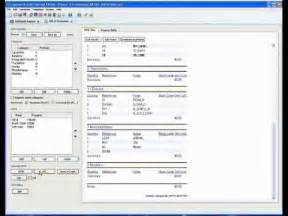Key Provisions of the PCB Bill
1. Increased Punishment for Sexual Offences
The PCB Bill seeks to increase the punishment for various sexual offences against children. Some of the key changes include:
Penetrative Sexual Assault
| Offence | Existing Punishment | Proposed Punishment |
|---|---|---|
| Penetrative sexual assault | 7-10 years imprisonment | 10-20 years imprisonment |
| Penetrative sexual assault on a child below 16 years | 10-20 years imprisonment | 20 years to life imprisonment |
| Penetrative sexual assault resulting in death of the child | 10 years to life imprisonment | Life imprisonment or death |
Aggravated Penetrative Sexual Assault
| Offence | Existing Punishment | Proposed Punishment |
|---|---|---|
| Aggravated penetrative sexual assault | 10-20 years imprisonment | 20 years to life imprisonment |
| Aggravated penetrative sexual assault on a child below 16 | 20 years to life imprisonment | Life imprisonment |
| Aggravated penetrative sexual assault resulting in death | Life imprisonment | Life imprisonment or death |
2. Introduction of New Offences
The PCB Bill introduces several new offences, including:
- Administering hormones or chemical substances to a child for the purpose of attaining early sexual maturity.
-
Punishment: Rigorous imprisonment of not less than 5 years, which may extend to 10 years, and a fine.
-
Failing to report or record a sexual offence against a child.
-
Punishment: Imprisonment of up to 6 months or fine or both.
-
Transmitting pornographic material to a child.
- Punishment: Imprisonment of up to 3 years and a fine.
3. Provisions for Child-Friendly Procedures
The bill emphasizes the need for child-friendly procedures during the investigation and trial of sexual offences against children. Some of the key provisions include:
- Recording the statement of a child by a woman police officer not below the rank of sub-inspector.
- Conducting the trial in a special court in the presence of the child’s parents or any other person trusted by the child.
- Completing the trial within a period of one year from the date of taking cognizance of the offence.
4. Strengthening of Provisions Related to Pornography
The PCB Bill seeks to strengthen the provisions related to child pornography. It proposes to:
- Increase the punishment for using a child for pornographic purposes from 5 years to 7 years.
- Introduce the offence of transmitting pornographic material to a child with a punishment of up to 3 years and a fine.
- Provide for the deletion or destruction of pornographic material involving a child.
Frequently Asked Questions (FAQ)
1. What is the POCSO Act, 2012?
The Protection of Children from Sexual Offences (POCSO) Act, 2012, is a comprehensive law enacted to protect children from sexual assault, sexual harassment, and pornography. It defines a child as any person below the age of 18 years and provides for stringent punishments for sexual offences against children.
2. Why was the PCB Bill introduced?
The PCB Bill was introduced to strengthen the existing POCSO Act, 2012, by increasing the punishment for sexual offences against children, introducing new offences, and providing for child-friendly procedures during the investigation and trial of such offences.
3. What are the key changes proposed in the PCB Bill?
The key changes proposed in the PCB Bill include:
– Increased punishment for penetrative sexual assault and aggravated penetrative sexual assault.
– Introduction of new offences, such as administering hormones or chemical substances to a child for the purpose of attaining early sexual maturity, failing to report or record a sexual offence against a child, and transmitting pornographic material to a child.
– Emphasis on child-friendly procedures during the investigation and trial of sexual offences against children.
– Strengthening of provisions related to child pornography.
4. What is the punishment for using a child for pornographic purposes under the PCB Bill?
Under the PCB Bill, the punishment for using a child for pornographic purposes has been increased from 5 years to 7 years imprisonment.
5. How does the PCB Bill ensure a child-friendly trial process?
The PCB Bill ensures a child-friendly trial process by mandating the recording of a child’s statement by a woman police officer not below the rank of sub-inspector, conducting the trial in a special court in the presence of the child’s parents or any other person trusted by the child, and completing the trial within a period of one year from the date of taking cognizance of the offence.

Conclusion
The Protection of Children from Sexual Offences (Amendment) Bill, 2019, or the PCB Bill, is a crucial step towards strengthening the existing legal framework for the protection of children from sexual offences. By increasing the punishment for sexual offences against children, introducing new offences, and providing for child-friendly procedures during the investigation and trial of such offences, the bill seeks to create a safer environment for children in India.
However, the effective implementation of the provisions of the PCB Bill will require concerted efforts from all stakeholders, including the government, law enforcement agencies, the judiciary, and civil society organizations. It is essential to ensure that the child-friendly procedures mandated by the bill are followed in letter and spirit, and that the perpetrators of sexual offences against children are brought to justice swiftly and decisively.
Moreover, it is equally important to focus on prevention and awareness-raising initiatives to address the root causes of sexual violence against children. This includes educating children about their rights, promoting gender equality, and challenging societal norms that perpetuate violence against children.
In conclusion, the PCB Bill is a welcome step towards creating a safer and more secure environment for children in India. However, its success will depend on the effective implementation of its provisions and a concerted effort from all stakeholders to prevent and address sexual violence against children.


Leave a Reply